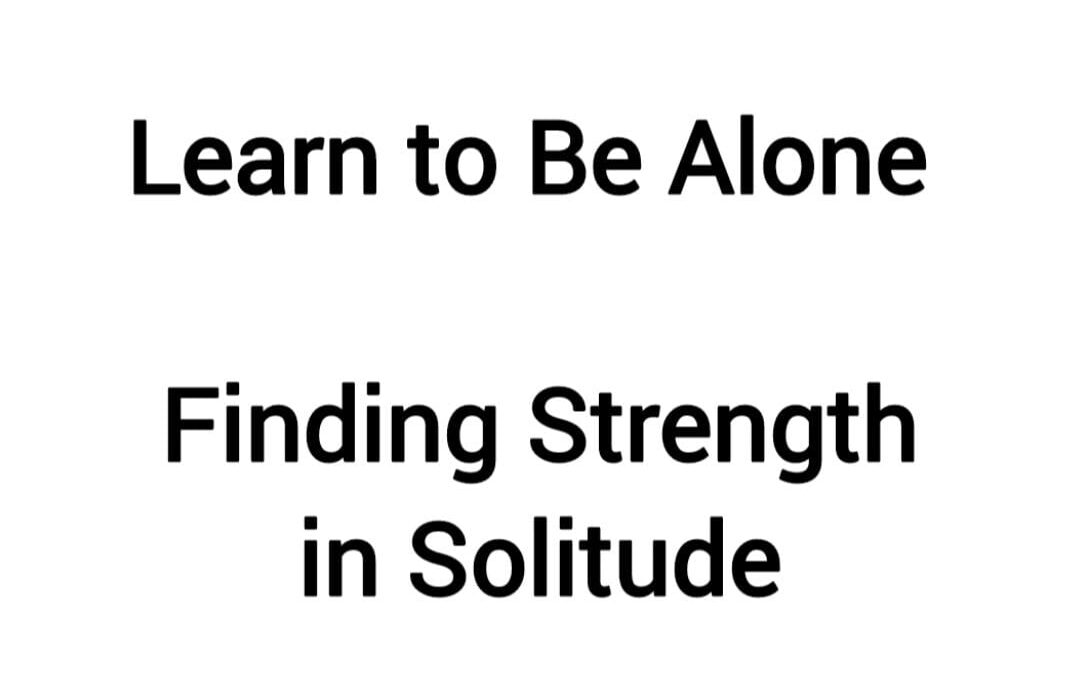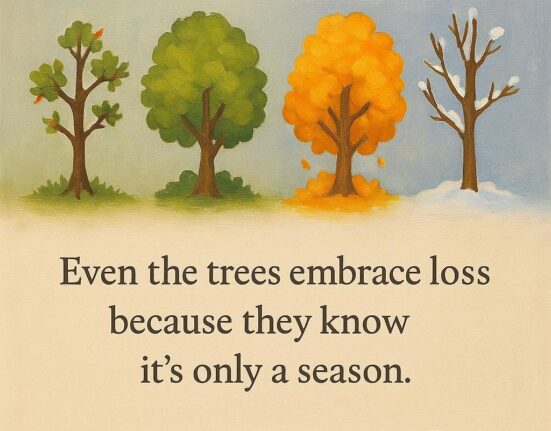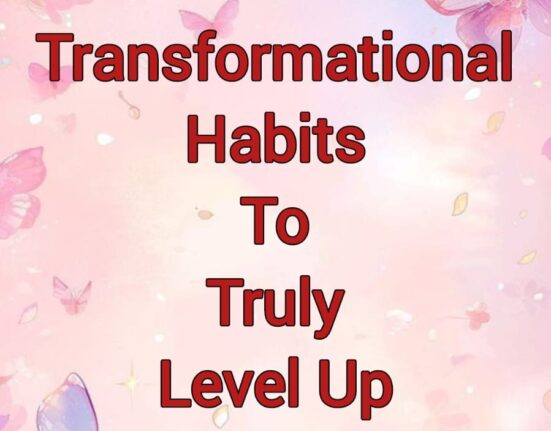Learn to Be Alone – Finding Strength in Solitude
In a world that celebrates constant connection, group activities, and social engagement, solitude can often be misunderstood. People associate being alone with being lonely, unwanted, or isolated. But the truth is, there’s a huge difference between loneliness and solitude.
Loneliness is a feeling of emptiness when you’re alone.
Solitude is a choice — a peaceful state of being with yourself.
Learning to be alone is not about cutting off from others. It’s about discovering how to enjoy your own company, finding peace in silence, and building a deep connection with yourself. In this blog post, we’ll explore why learning to be alone is not only empowering but necessary for personal growth, clarity, confidence, and independence.
The Myth: Alone Means Lonely
From a young age, we’re taught that happiness comes from relationships, companionship, and social interaction. While human connection is essential, depending on others for every experience in life can be limiting. It creates emotional dependency and stops us from truly understanding who we are.
We must challenge the myth that being alone is negative. In fact, solitude can become a powerful teacher — one that leads to inner strength, peace, and self-awareness.
Why You Should Learn to Be Alone
Let’s look at some of the powerful reasons why being alone is not only beneficial but crucial for your well-being and growth.
1. You Learn to Enjoy Your Own Company
You are the only person who will stay with you for your entire life. Isn’t it important to enjoy your own presence?
Spending time alone allows you to discover your likes, dislikes, values, thoughts, and inner patterns without external influence. You’ll no longer need constant noise or distraction to feel whole — you’ll find peace within.
2. You Become Emotionally Independent
Emotional independence is the ability to regulate your own emotions without relying on others. When you’re constantly surrounded by people, you may unconsciously depend on them for comfort or validation.
Learning to be alone helps you stand on your own emotional feet. You’ll learn to soothe yourself, solve your own problems, and manage stress more effectively.
3. You Build Confidence and Courage
It takes courage to go to a restaurant alone, travel solo, or attend an event by yourself. But every time you do something independently, your confidence grows.
You stop seeking approval. You start trusting your decisions. And most importantly, you realize: You are enough.
4. You Discover Clarity and Focus
Solitude gives you the space to think clearly. No distractions. No opinions. Just you and your mind.
This space helps you:
- Reflect on life choices
- Understand your goals
- Organize your thoughts
- Hear your inner voice
That clarity can lead to powerful personal and professional breakthroughs.
5. You Stop Waiting for Others to Live Your Life
Many people delay experiences because they don’t have someone to go with. Want to try a new café? Go on a hike? Start going to the gym?
Don’t wait.
Life doesn’t stop because someone couldn’t join you.
When you learn to do things alone, you take control of your happiness. You no longer miss out because of someone else’s schedule.
Simple Ways to Practice Being Alone
You don’t need to go on a solo trip to another country (unless you want to!). Here are some simple ways to start enjoying solitude in your daily life:
- Go for a walk without headphones
- Take yourself out to lunch or dinner
- Visit a museum or art gallery solo
- Read a book in a quiet café
- Try a hobby that requires focus (painting, writing, gardening)
- Spend a weekend evening at home without plans
- Practice meditation or journaling
At first, these might feel uncomfortable. That’s normal. But over time, these moments become nourishing, peaceful, and even addicting — in the best way.
Being Alone Helps You Heal
When you’re constantly around others, it’s easy to suppress emotions, ignore problems, and distract yourself from inner wounds. But when you’re alone, the truth surfaces.
That may feel scary, but it’s also a gift.
Being alone gives you the chance to process past pain, understand unresolved feelings, and work on healing emotionally and mentally. Instead of running from your thoughts, you face them. And in that process, you grow stronger.
Aloneness Builds Creativity and Innovation
Some of the greatest artists, writers, and thinkers in history valued solitude.
Why?
Because creativity thrives in silence. When you’re alone, you enter deep focus and tap into thoughts you didn’t even know you had. You make connections. You birth ideas. You see patterns.
In today’s noisy world, solitude can be your creative sanctuary — a place to innovate, dream, and build.
The Difference Between Alone and Isolated
Let’s make something very clear: Being alone is not the same as being lonely.
- Loneliness is when you feel empty despite being around people.
- Aloneness is when you feel full even when you’re by yourself.
Solitude becomes a problem only when it turns into isolation — cutting off from everyone and neglecting connection. Healthy solitude is balanced. You know how to enjoy your own company and connect with others when needed.
How to Overcome the Fear of Being Alone
If you’ve always been surrounded by people, being alone can feel scary. But fear is often just unfamiliarity. Here’s how to ease into it:
1. Start Small
Spend 10–15 minutes alone without any distractions — no phone, music, or TV. Just sit, think, or journal.
2. Redefine the Experience
Instead of saying, “I’m alone,” say, “I’m recharging.” Shift your mindset from fear to empowerment.
3. Create a Safe Space
Make your alone time enjoyable — light a candle, play soft music, sit in a cozy corner. Let solitude feel like self-care.
4. Remind Yourself Why You’re Doing It
Alone time is not punishment. It’s preparation — for clarity, growth, and independence.
Alone Time = Growth Time
When you embrace solitude, you:
- Make better decisions
- Listen to your intuition
- Stop people-pleasing
- Become emotionally resilient
- Cultivate inner peace
You stop needing the world to complete you. Because you’ve discovered wholeness inside.
The Empowerment of Being Alone
Here’s what no one tells you:
The most powerful version of you is the one who doesn’t fear being alone.
When you no longer need company to feel content, you become unstoppable. You travel where you want. You build what you dream. You go after what matters — with or without anyone’s approval or presence.
Aloneness becomes freedom.
Don’t Wait for Others to Start Living
You don’t need a partner to start exploring the world. You don’t need a group to join the gym. You don’t need anyone’s presence to enjoy a sunset, learn something new, or pursue your passions.
Being alone doesn’t mean something is missing. It means you are growing, glowing, and getting stronger.
So take yourself out. Sit with your thoughts. Discover who you are outside of relationships and roles.
Because once you learn to be alone, you’ll never again feel incomplete.








Leave feedback about this